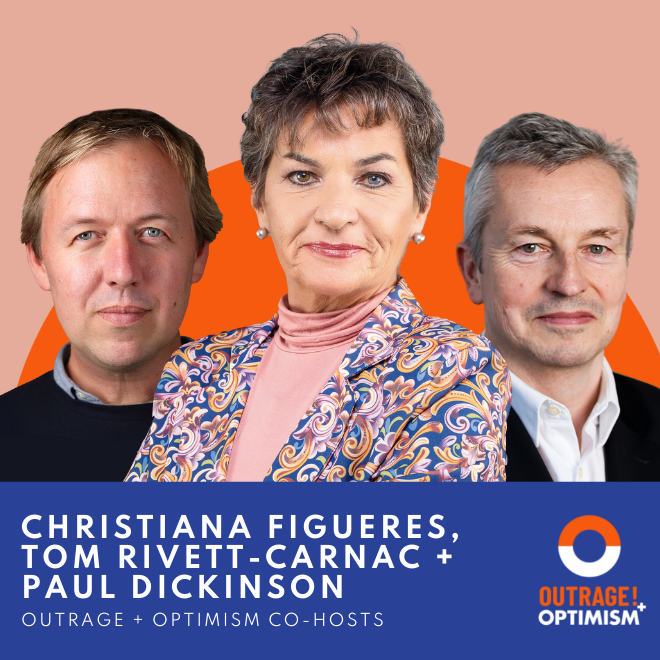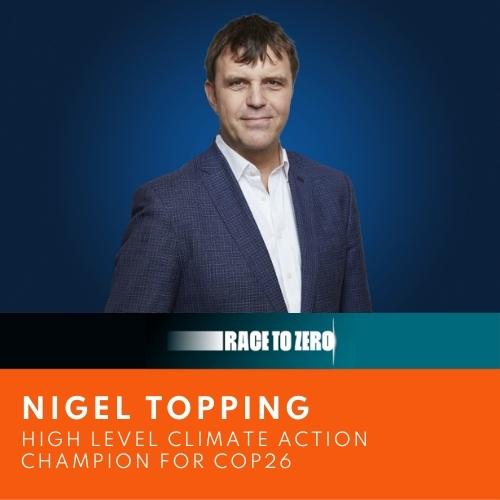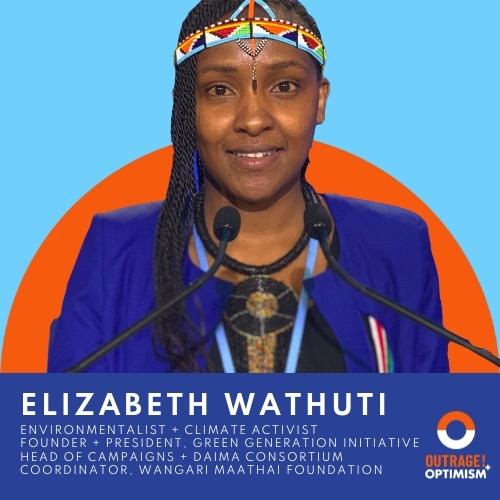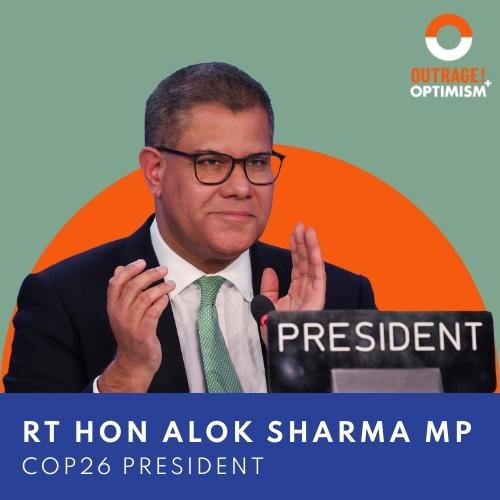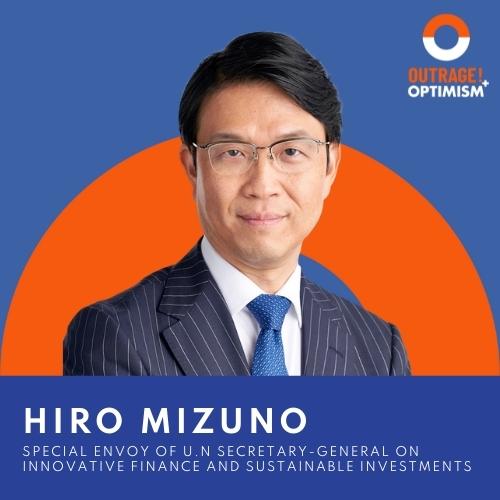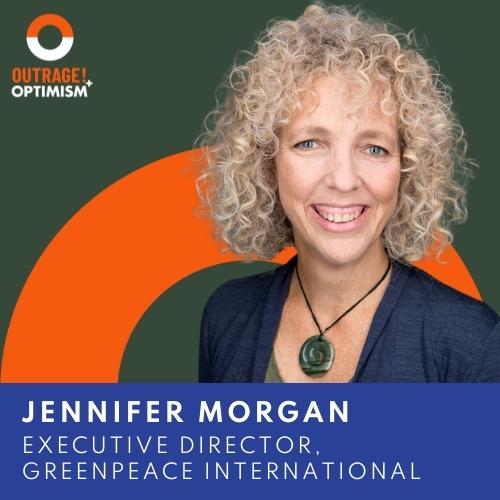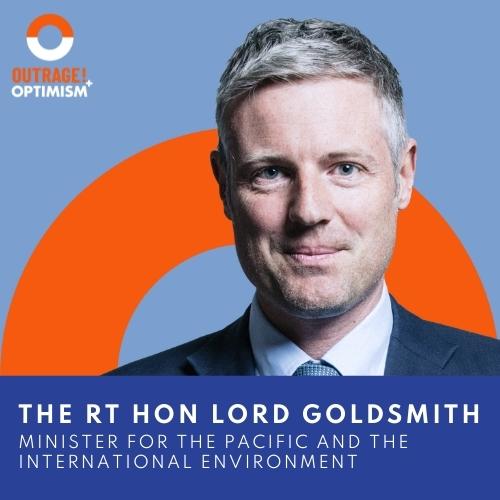127: Live from COP26! Energy For People and Planet
Coming to you LIVE from Energy Day at COP26! So, energy and climate change. Where should we start?
About this episode
Coming to you LIVE from Energy Day at COP26!
So, energy and climate change. Where should we start?
With both the IEA World Energy Outlook and the IPCC AR6 Scientific assessment that came out this year declaring that coal has peaked, we also know that gas and then oil must also peak and see their way to the museums, as Christiana would say. 1.5C has been the only north star at COP26 to doing things like consigning coal to history, and every step towards decarbonizing our economy paints a clearer and clearer understanding more than ever before that we have to start now to cut emissions in one half by 2030 and restore and protect nature, at the same time.
But how does this apply to the developing world? The right to development is unquestionable, morally and also economically. But whilst those in rich and middle income countries received energy from fossil fuel sources that enabled their development, the situation that put us in is forcing us to think differently about providing clean, low carbon, and affordable energy to ensure societies that are bearing climate impacts the most harshly are also given an equal and equitable pathway to develop.
So where do we begin to provide accessible, clean, affordable energy to all? What are the challenges, what are the benefits, how will this new fund support billions of people to live better lives - and how fast can it be achieved?
Tune in to find out!
Links mentioned in the show:
LISTEN: Check out our new Shortcast with Blinkist!
Watch
Full Transcript
Transcript generated by AI. While we aim for accuracy, errors may still occur. Please refer to the episode’s audio for the definitive version
Tom: [00:00:23] Hello, everybody. It is great to be here. We're very excited to be having this conversation with you, and the first thing to say is welcome to Outrage + Optimism. All right. My name is Tom Rivett-Carnac.
Paul: [00:00:37] And I'm Paul Dickinson.
Tom: [00:00:38] And we don't have Christiana Figueres today, she's gone back to Costa Rica, but we are so excited to be bringing you this special conversation from COP26. Now in a minute, we'll be inviting the guests to the stage and Paul will do an introduction. But I just wanted to start with a few words of context about what we're going to talk about. First, you should note this is a live podcast recording we are speaking to many people elsewhere. It'll be released tomorrow, so we're really grateful that you're joining us. And I just wanted to give a little recap on the last couple of days.
Load MoreI don't know about you, but it's been a real rollercoaster for us when we arrived in Glasgow on Sunday with Christiana, we saw what was coming out of the G20, Boris Johnson giving every indication that he was a schoolboy who'd forgotten to do his homework, and this was the last moment and he was sort of panicked in front of the camera. But since then, it's been really remarkable. We have been so impressed at what's happened. I mean, just think about the last few days the commitments that have come out are now taking us, it looks like, fully implemented, there's a lot of work left to go, to one point eight degrees of warming. Now, if you told us that six years ago in Paris, we would have bitten your arm off. This is an amazing step forward. And of course, we can always say there's more to go. There's more we need to do. But actually we should be very excited already. And it's only day four. Ok, so today is Energy Day here at COP26 and we're going to be having a conversation with four remarkable people who have created one of the most transformative breakthroughs that that we have already seen come out this week. So we're going to have Per Heggenes, the CEO of the IKEA Foundation, Rebekah Shirley, Director of Research at WRI, Andrew Steer, the President and CEO of the Bezos Earth Fund, and Rajiv Shah from the Rockefeller Foundation. If I can invite them all to come to the stage and this will be ably moderated by really the best host of Outrage + Optimism, Paul Dickinson. So I hope you enjoy. Paul, over to you.
Paul: [00:02:32] So. I just want to start off by saying that this is about systemic breakthrough, and Tom and I are very excited. We've raised $100 million this morning to make a systemic breakthrough. We found a Silicon Valley company that can print on both sides of a badge. How about that, huh? Ok, thank you. So look, we are here on a very auspicious day. The global alliance announced this extraordinary 1.5 billion seeking to crowd in a great deal more. I would like to start off by asking Andrew if I may. You said around this extraordinary announcement that by bringing together leading technical experts alongside financial agents, we can create a sort of significant uptake in the level of energy, jobs and opportunity in many developing countries. And can I ask you how you've arrived here, this extraordinary position you have as the largest climate philanthropist in the world? What's brought you here and what are you looking forward to with this initiative?
Andrew Steer: [00:03:42] Well, I'm not actually the largest philanthropist, but I have the privilege of working for the Bezos Earth Fund as their CEO. And this is an exciting time, and I would commend my fellow panelists for a really astonishing. I mean, Raj, you deserve enormous credit for this. So, I mean, at one level, things are going great, aren't they? We're expanding renewable energy. We're increasing access. We're decommissioning coal. At another level we are hopelessly too slow. We've got to go from what, twenty eight percent renewable energy in the grid at the moment to 70 percent by 2030. We've got to reduce the amount of coal generation from what, thirty nine percent today to about two percent by 2030. And we've got to bring power to the 800 million that don't have it. I mean, this is and we're nowhere close to the pace. And the question is, why aren't we going faster given that we now know that renewable energy is cheaper, given that we know the rate of return of electrifying Africa or electrifying those that don't have it is amazing. And the reason is there are just some barriers that have never been removed. So you've got a whole bunch of really great organizations from the World Bank to Iryna, to the Asian Bank to NGOs like WRI, doing wonderful, wonderful work. But it is not adding up. And the beautiful thing about the Global Energy Alliance is saying, Why don't we try and make it add up? Why don't we put together enough grant resources from philanthropy that we can use them for three really transformative things. One, the politics and the plans and the policies. Second, the pipeline of really financeable projects. And third, the risk management and the subsidization that will leverage incredible change. And it's been unbelievable to see the receptivity to this from the big historic organizations like the World Bank to the new nimble international solar alliance types to the RMI types. Everyone's saying yes, we are now at a pivot point in history, or at least we need to be. We are willing to do things differently. If we don't do things differently, we will fail.
Paul: [00:06:07] That deserves a round of applause. Rebekah, if I can ask you to hold the microphone ridiculously close as you speak. You are from the World Resources Institute, ably steered for many years by Andrew. Sorry to lose him, but you know, but you are something of an expert in renewable energy, particularly in Africa, but also in other countries. Can I ask you about barriers? Actually, the difficult question: what are the biggest barriers to delivery in terms of clean energy, a just transition jobs and even the role of government?
Rebekah Shirley: [00:06:46] It's a brilliant question. Thanks so much for having WRI at this event and for asking that question and shining some light on Africa and from the energy point of view, your question about, you know, sort of the challenges of delivering energy access. They are multifold. If we're being frank about this from a technical point of view, really, and I'm coming at this from a data point of view, as well as doing research for WRI, these are actually very difficult markets to serve, right? We're thinking about electrification of very widespread low density communities and advanced electricity markets. We had massive subsidies to do this right. We think back to the Rural Electrification Act in the U.S. in the 1930s that allowed for low interest loans to be sort of the, you know, channeled through cooperatives, many of which are still around today. So that we had universal electrification by the 1950s, so that's we're talking about 70 years right of a history of full electrification and consumption. So that's what we're trying to accomplish right now in Africa. So it's actually a very difficult exercise and then you layer on top of that that these are low consumption communities, right? On average, if you combine both rural and urban households in Africa, the average is something about 30 kilowatt hours per month. That's less than an average U.S. household is using per day. And so thinking about the returns on the investments after you've built all of this expensive infrastructure to get out there, the returns are marginal. So it's actually quite a difficult exercise to accomplish. And I think that's where the element of financing comes in and where the element of technology comes in. The SFR estimates that the budget is something like about 30 billion annually that would be needed between now and 2030 to deliver access in Africa. And that's actually not that much when we think about it, right? I was listening to one of the sessions yesterday. I was saying that's less than we spend on ice cream and you as a world. So it's really not that much when we think about it.
Paul: [00:08:43] We're not spending too much on ice cream. I mean, we are, but it's just ridiculous. It's a joke. But it's kind of not funny, right?
Rebekah Shirley: [00:08:50] Kind of not funny. Not that we shouldn't spend money on ice cream, but just to put it in context that we're not talking about a whole. It's not a it's not a lot. And you'd be surprised with that figure how big the gap is, especially in countries where that are the growth hubs right now, the Democratic Republic of Congo, Ethiopia, Kenya, Nigeria, the gap between what's needed and what's actually being committed and then what's being dispersed. It's sort of mind boggling. And so those are some of the challenges around, you know, energy access delivery, which is why partners like the Bezos Fund and Rockefeller are so important in this fight. But then to your question, and then I'll stop about sort of what can be done from a transition point of view. I always find that this word transitions and we're talking about the African context is a bit peculiar because the transition would suggest a metamorphosis of some type or pivot from one state to another and for Africa, many of these countries are not so much thinking about a pivot, but how do we from now think about building systems that that will be compatible with a low carbon economy in the near term, medium term and longer term future? Or some countries are thinking about, you know, we've actually got a very green grid as it is. I'm coming from Kenya, from Nairobi, Kenya, where we've got lots of geothermal, lots of hydropower. So these are actually quite green grids. Now how do we continue to grow these economies and maintain and sustain without having to go to other types of resources? And then there are other countries that are thinking, you know, we've got these resources in the ground that we have every right to develop. How do we do so with an exit strategy in mind? How do we do so thinking and considering that in the near and medium term, they may not be funders for the kind of resources that we would like to develop? And so it's actually not one transition story. There are many transition stories, and that nuance becomes so important in the African context. So Andrew taught me the rule of three, so I'll just say three things very quickly on what can be done from a transition point of view. One, I think that we need to be talking more about the data and the evidence side of things. We have this talk from a moral standpoint a bit too much and we started to kind of have to move into the implementation, right? So we need some evidence based plans for how do we actually transition in a sober way, in a meaningful way. We're moving from the moral conversation to implementation. That's number one. Number two is keeping access centered in this conversation. And I don't mean the household electrification definition of access. Again, coming from Kenya, we've seen so many pilots, so many programs about electricity access delivery. And a lot of them end up with you've got the meters. But the connection does not mean that I have the ability to pay for that power or that I can own the resource or the appliances that I can use that power for or that I can run a business or a factory or farm with that power. So we need to think about access now, not just from one household point of view, but serving commercial and industrial enterprises. And once we are doing that and thinking about accessing a sort of a larger way, we're going to be able to sustain these economies through pathways. And the third, I'm always going to come back to the finance and the support. Because I think if we're able to talk, if we're being really honest, a lot of the world has developed and has been able to benefit from African resources, right and seen and unseen ways. Enough said there. And so there's sort of an imperative, not just from a humanitarian point of view, but from a point of view that these are the economies that sustain the world, these are the economies of the future. The U.N. is saying that by 2050, one in every four people on the planet is going to be African. So these rooms are going to look very different in our lifetime, right? So these are the economies of now. These are the economies of the future. And so there's more than just a humanitarian argument for why the world needs to sort of get behind Africa from a financing point of view. So those are my three thoughts on the transition.
Paul: [00:12:59] Bravo. Bravo. How does it go? Nobody's safe until everybody is safe and 759 million people with no electricity that doesn't work. So can I invite you Per. I'm going to just sort of point out that you've been CEO of the IKEA Foundation since 2009. You've expanded to 45 countries. You're on the board of many NGOs. And I have a very sort of specific question. You're deeply committed as an organization to SDG seven being Affordable Energy for all. I mean, can you explain how the alliance, the Global Energy Alliance for People and Planet was conceived and how seed capital from different kinds of financiers can de-risk? And what have you seen on the ground that's propelled you to this?
Per Heggenes: [00:13:44] Well, thank you, Paul. First of all, it was conceived because smart people worked with Rhaj to set up this idea that we can create an alliance where we would basically create something that's unprecedented collaboration between governments, development banks, multilateral banks, the private sector and philanthropists to actually do something that hasn't been done before in a proper way, as Andrew was relating to. I mean, we can do this. It's just a question of how we finance it, right? And this is an opportunity for us to actually do that by going country by country, working with the governments and the infrastructure and the different operators in those countries create a plan by country to accelerate access to renewable energy. And by doing that, as we have set out our plan to provide renewable energy to a billion people living in poverty and poor communities. And at the same time, which is really important to me too, we can cut four billion tons of carbon, which is really important in the race to to net zero, obviously. And on top of that, we would create jobs. One hundred and fifty million jobs. Now I'd like to bring this to sort of what does this mean for an individual, right? Because we talk about access to energy and in numbers. But what does it mean to be in a position where you have no energy at all? You know, I remember many years ago, people know I don't know a lot of work with refugees in sub-Saharan Africa and Asia, in the Middle East. I remember coming to the Azraq refugee camp in Jordan many years ago and you realized this is a refugee camp built in the middle of the desert. It consists of metal containers and fifty thousand people live in metal containers in the scorching heat. Right. And they have no access to energy, so I thought, well, this is bad for a number of reasons. First of all, half the time of the day it's dark, right? Or it's dark half the time of the 24 hour cycle. It's very dangerous for women to go out in the dark. It gets very dark. There's no absolutely no opportunity to put on a fan, to have a fridge, to have an opportunity to actually store food for more than a few hours. There's no opportunity to actually do anything to create a business and create an income for yourself. So we decided just as a foundation that we build a solar park and we financed the necessary development of the grid to actually provide power to these people. Now what happened? Well, first of all, it's safe to go around at night. It's lighter. It’s possible for a mother and father to go and buy food, put it in the storage and have it for a few days and be more economical about the food. It's possible for kids to watch TV, maybe if they can afford to buy a TV. It's possible to put up a little fan so you can sort of live through this scorching heat, which will develop inside these containers anyway. And more importantly, you see all these small businesses popping up because suddenly there's access to energy and access to electricity means that you can start small businesses and you can actually thrive as a community. So it totally changed this community. It wasn't that expensive to me, but basically refugee camps anywhere in the world have no energy, and that's basically the base point. And then whatever we can do as a philanthropy, we helped in different ways, in different situations to actually build access to energy. But you know, it's not the rule, it's the exception.
Let me give another example if you're OK with that, because we don't so much work with access to energy in different parts of the world. I remember visiting a potter in Karnataka in India. Raghu was his name. He actually is a potter. He had three people employed, two people he needed to actually turn the wheel, the pottery wheel. And then one person was employed full time to keep the kiln going, the heat going. Our partner came in and provided access to energy through solar. That enabled Raghu to actually have an energy powered wheel. It wasn't only a wheel where he didn't needed two people anymore, but it was also an energy pottery wheel that he could adjust the speed and therefore make better products. Now secondly, our partner also produced a machine, a blender that will help him manage clay. I mean, it mixed the clay, which is really hard work if you have to do it by hand. Thirdly, they also developed a way to create a solar powered, effective kiln. So suddenly, Raghu is on his own, producing 300 percent more income and with three employees less and the employees can go on to do the same thing. To me, this is just what's changed. It's not only about kids getting the opportunity to study at night. This is about changing a community for every building in the economy, growing the economy and making it possible for people to make a living for themselves. Because if they can, they will stay where they are. This is what they want to be. They want to be there in their community and they want to do whatever they can to actually address the root cause of the problem in many countries in Africa. And that's the fact that people can't afford to make a living. If we provide access to energy, it will make such a difference, and I'm so happy that we can contribute to that through the new alliance that we have built together. And I think this is going to be the beginning of something really wonderful that we will have many more partners coming in to contribute with us and to actually help build this alliance and grow this alliance and do that until we have reached net zero and everyone has access to energy.
Paul: [00:19:54] That deserves a round of applause. I don't know if anyone was like me at the Olympics, I can't remember the first time it happened, but just completely tearing up when the refugees arrived. You know, it makes you think, thank you for that. A very moving and inspiring work. I'd like to have a discussion amongst us all after we hear from Rhaj about how we're going to accelerate and crowd in the private sector and how are we going to get governments more involved. But Rhaj, you are president of the Rockefeller Foundation and also a very distinguished former head of the USAID spending about $20 billion a year doing this. So I'm fascinated to learn from you how your previous experience has turned into this extraordinary collaboration and why philanthropy is particularly key to this.
Rhajiv Shah: [00:20:46] Well, thank you. I'd say, you know, there are two lessons that I take away from those past experiences that have informed this, but frankly, they're both crystallized by core values that the IKEA Foundation has. That they've asked us to promulgate through this collaboration. The first is simplicity. We've all been to an IKEA, and part of the success, I think, is there's a sense of simplicity. And very simply put, this effort is about making sure the grand fight to save our planet lifts up and includes everyone, including the most vulnerable. And that's why we know we're going to stand with the refugees that Per just mentioned. We know we're going to help the families and girls that Rebekah mentioned. Andrew knows and has been an instigator of the climate fight for a long time and knows that this fight only succeeds if it's just, and it's only just if it captures and accelerates and delivers on the hopes and aspirations of the three point six billion people that live, consuming less than one thousand kilowatt hours of power per capita around the world. While people in industrial nations like OECD economies consume eight times that on average. I'm an American and we consume probably 12 times that, so you just can't have a grand fight to save the planet. If the cost of it is keeping billions of people trapped below a level where they can turn their productivity into real improvements in their life and their real hopes for their children. So that's our purpose. The second value is togetherness, and I love the way our IKEA colleagues say that because it forces us to say, Well, what are we learning from each other and how are we treating each other? And the truth is, Andrew, when he jumped into this and said, Well, if we're going to do this, this can't just be one of many platforms that are out there, this has to be the platform. We have to have everyone involved. We have to listen to everyone. And even if we have to adapt this or that, it only works if we're all in a common, we're all at a common table. And that means, you know, we have to listen to ministers when they explain why decommissioning coal is hard, when they're trying to provide productive base loads to industries and waiting for a compensatory renewable energy project that might take years and years and years. We have to really help them do both things together. It's why we have to listen to entrepreneurs that are building out the microgrids that Rebekah mentioned when they say, Gosh, I need a small subsidy to get this thing really going and to build thousands of these instead of just a few hundred. And we have to help them get those subsidies. We just have to listen and learn from everyone and understand that we will only be able to go faster, as Andrew points out, if we go together and frankly, the institutions we are all a part of are usually not geared to partner in that way. We're usually rewarded for doing our own thing, talking to our own boards, responding to our own employees, serving our own grantees, whatever it is. So I just want to thank Rebekah, Per and Andrew for kind of having the courage to break out and try something new, and we're going to try to embody togetherness as we go forward.
Paul: [00:24:14] Well, that also deserves a big round of applause. Embody togetherness, if I can quote IKEA for the many people. Ok, so look just a discussion now, really. And I would invite anyone to jump in with the provision that you've got to grab a mic. How are we really going to crowd in governments, development banks, the private sector? I mean, there's something completely new going on here, right? Rather than little spots of philanthropy occurring in a kind of eclectic way, this is turning into like a formal system with philanthropy at the front of the arrow. Can somebody talk about how that structure is going to unravel? No, that's not the right word. How that structure is going to build scale.
Andrew Steer: [00:25:02] Andrew? Well, look, there's good news and bad news, the good news was yesterday. 130 trillion dollars of assets that are committed to move towards net zero by 2050? By the way, Outrage + Optimism is the podcast you all must listen to every week. So let's be crystal clear about that and your wonderful co-host Christiana Figueres talks about this Great Wall of finance. So get inside the head now of, you know, the person who runs Bank of America or the person who runs the large hedge funds or the person who runs the insurance companies. Every year that passes, they're going to be looking for investments that have less carbon emissions from them, and they better get on with it pretty quickly. That's the good news. They are actively going to be looking for the kind of investments that we want to finance and by the way, in the Global Energy Alliance we’ll be financing renewable energy, but will also be financing the decommissioning of coal. And that's pretty exciting, isn't it? They'll be looking for those investments. That's the good news. The bad news is that as of today, a tiny percentage of those monies will go to the developing and the emerging world. Yesterday, Larry Fink said, Look, you know, I might be managing what is it? Eight trillion dollars,10 trillion dollars, to be honest it's not going to the emerging and developing world for the most part. And then the question is why not? And the reason is what we talked about before. There's the enabling environment, there's the lack of a plan often. And by the way, it's not just in those countries, they don't have a plan. Most rich countries also do not have a very coherent plan. But because here you've got all the legal and regulatory, you actually are much safer to make investments in rich countries than it is in some of the countries we're working in. So, that's what this is all about. It is about policy and politics, plan. It's about then these financial institutions need to engage at scale. But of course, the whole point is in many of the things that Rhaj was, all three of you were talking about, actually, they are not large scale, so you have to cluster them together. You have to make them into investable groups. We had a fantastic discussion last week with your technical team on how do you electrify the Democratic Republic of Congo when 80 percent of the population live at least 300 miles from the nearest transmission line? I'm not sure those numbers are exactly right. What do you do? Well, obviously you think about distributed renewables. Yeah, well, that's hard work, isn't it? You do them one by one. Suppose you came up with a model and you could do twenty five cities over the next eight years. Twenty five cities each of them, and Ashwin is there. Who is the father or the grandfather of some of these great ideas, by the way. Suppose you did a metro grid for 25 cities. What would it look like? Suppose you then play this through and you ask, OK, you be the financier sitting in New York, you be the World Bank, you be the leading technical adviser from the World Resources Institute. You be that. What do you need to make that happen? That's what it's about. And the first thing you have to do is get these guys all to work together. We have this one very funny, I should be careful how I say this, but a very funny experience when we were sitting with some of our potential partners and somebody was saying from one of these big organizations was saying, Look, don't worry, they're already plans. I mean, everyone in Africa, all the countries have plans. And Damilola, who knows a lot about Africa, she's Head of Sustainable Energy for all which co-sponsors this building. She said, Look, I've been working in Nigeria in charge of energy for a long time. She said, actually, there aren't coherent plans. In my country, Nigeria, there are 29 plans and each international agency has a deal with the government on their own plan, and none of them add up to anything. So that's the starting point. So there’s no silver bullet here. It's a jigsaw puzzle. And the purpose here is to put the pieces together at the right time in a coherent way.
Paul: [00:29:41] Ok, that sounds pretty good. Would anyone else like to have a little word about the policy environment or how we're going to crowd in or how that pipeline gets built?
Rhajiv Shah: [00:29:51] Well, I'll just add, I think there's a yearning for people to see things that are practical, that work and invest in their growth. So some parts of this project are focused on distributed renewable electrification. In India, we've been serving about 500,000 customers through these rural mini grids, and we have data that shows they pay their bills. Ninety seven plus percent of the time they sustain these enterprises, they use the power they draw down to create jobs and grow businesses and turn the lights on, and it transforms lives. And based on that data, which took years and years to develop. Tata Power came in and said, Well, if it works that well in a few cases, let's build ten thousand of these and reach 10 million people and transform lives at a much greater scale. And that's another articulation of what Andrew said about the DRC and what we're going to try to replicate in place after place, which is, results, scale investment.
Rebekah Shirley: [00:30:55] It's great. And then just a quick thought from me on crowding in finance. The conversation revolves around energy finance, and I just wanted to bring up the fact that especially in Africa, there are some really interesting things happening in the nexuses between energy and, say, for instance, agriculture. And so in the agriculture space right now, agriculture sort of the largest economic driver on the continent, right? Some 60+ percentage of of the of the labour market is in agriculture. Less than two percent of electricity use comes from agriculture. Less than five percent of lands across the continent are actually irrigated. And so thinking about not just again, this comes back to when we think about electrification, what do we mean by electrification? It's really not just that household level. There's so much going on and sort of these nexus areas and productive use areas. You've got hundreds now, just in the five years that I have been living in Nairobi, there are so many companies that have now sort of sprung up in these spaces that are doing everything from honey processing, oil pressing, egg incubation, ice freezing, fish drying, fruit drying. So there's a lot that's happening that I think can also be part of this conversation; that's about delivering energy, access and productivity together to Andrew's point about sort of, you know, an ecosystems and the whole systems approach to solving problems.
Paul: [00:32:19] So the Global Energy Alliance building capacity, linking and essentially enabling and accelerating. Is that about right?
Per Heggenes: [00:32:28] Exactly. And we're going to take a country based approach, and we actually also put out what would be a simple world I call a call for proposal. We call it something more sophisticated, but that's what it is. Yeah, partnership, it’s called a partnership. So we're going to work with the countries and the communities where we really see a real interest in making a change and working with the alliance to actually bring all these partners together and scale up at the big level. And I think that's going to be very interesting to see what kind of response we get from the different countries now and who is coming forward. What makes me very excited when I go to the countries is not only the interest from the government and we had several governments represented even at our launch a couple of days ago. But also the many really smart young people, smart young businesses that are thriving in these markets. So it's not like we have to come down and tell them how to do this. We have to do something to leverage finance and make access to capital. I think, in many of these countries you have such a thriving business in renewable energy and that business will just take off when we give them the opportunity to do that.
So what we can do, which is sort of unique in this alliance, is that we have a good amount of philanthropic capital. And you know, the good thing about philanthropy is that we can take big risks, we can take risks and we cannot afford to fail because we learn from the failure and then we go on and do it better next time. And that's the kind of risk taking that doesn't exist with many of these other institutions. So if we can spend some of our investment in developing the projects to a level where they are investable and then maybe de-risk some of those investments in different ways with different models, we can actually get much more capital to come to that market to build and accelerate the development of access to renewable energy in a way that otherwise wouldn't have happened. And I think that's one of the unique features of this alliance and the three partners who have come together, who I hope will be also joined by other partners in the years to come.
Paul: [00:34:37] It's so inspiring to consider this an agricultural metaphor, if I may. There's a need, you know, to grow and there's little little places all this water's needed. And I think you're putting together the plumbing, as Andrew pointed out, it's connected to 130 trillion dollar tank of water. So on that bombshell, I'm going to hand over to Tom.
Tom: [00:35:00] I want to say thank you so much, this has been such an inspiring conversation. We really appreciate it and I love what you said about togetherness and collaboration, right? And it's just fantastic. Those are two principles. This is a highly complex area you're all going into, and it's defeated us in some ways in the past. But togetherness and deep collaboration are really the keys. I'd like to invite you to just close, if I may, by offering us one thing each that you are both outraged by and optimistic about here, day four of COP. Andrew?
Paul: [00:35:29] It’s in our contract, we have to ask.
Andrew Steer: [00:35:33] I am outraged by the fact that of the 150 odd new updated NDCs. Only about less than a hundred show real improvements in ambition. I am profoundly optimistic about what we've heard in the last three days, and I heard you earlier, Tom. Talk about how sort of there's a bit of an inflection point going on here right now. How incredibly exciting it was to hear from the private sector, the financial sector, from civil society and indeed from governments as well. And we need all hands on deck.
Rhajiv Shah: [00:36:09] I'm outraged by the fact that so many years after Paris, we're still on track for a temperature rise of at least 2.7 degrees Celsius, despite the commitments and the discussion and the political agreements and the progress. And I'm optimistic because everyone I meet here seems, and this is my first cop just seems obsessed.
Paul: [00:36:30] Aw.
Rhajiv Shah: [00:36:32] Yeah, thank you, really appreciate that. Just seems obsessed with both saving our planet, but doing it in a way that lifts up everybody. There's a spirit of both commitment to climate and fundamentally as a commitment to justice that seems to just be fully to go hand in hand, which I think is the secret to success in the future.
Rebekah Shirley: [00:37:03] That's great. In a similar vein, I think I'm outraged by the fact that this many years after Paris, that the production gap is projected to still be so big. Even with all of these commitments, we're still on track to be producing in 2030, twice as much fossil fuel as we need to be for the 1.5 degree pathway. So I'm a bit outraged about that still, but I think I'm optimistic about the fact that conversations like just transition, conversations about adaptation, conversations about loss and damage and so on are actually now mainstream conversations. They're not where they need to be. But we're able to talk about them, we have entire pavilions about these spaces now. So I'm optimistic about the fact that the conversation is expanding and headed where it needs to go.
Per Heggenes: [00:37:49] I think I'm mostly outraged by the fact that I belong to this kind of generation, which is the first generation that actually got to really feel the real impact of climate change. And we're the last generation to be able to do something about it, and it's taken us so long to get there. And that's outrageous, and I'm glad I'm in this now. I'm glad I'm at my first COP too.
Paul: [00:38:12] Happy birthday!
Per Heggenes: [00:38:14] But it's outrageous that it's taken us so long to do this seriously, I mean, people have warned us for 35, 40 years that this is happening and it's only now that we are really taking this seriously and doing something about it. What makes me optimistic is whenever I get to go into all the countries where we operate, and it's been a while without that and I miss it terribly. But when I go to those countries and I see these entrepreneurs, these young entrepreneurs, the small businesses, the great ideas, the young people who come to me and say, we have this idea, can we do this? Do you want to fund this? Can we do this? Then I just get very optimistic. But there's so much ingenuity out there. There's so many good ideas, so much energy among young people to actually make a difference and turn their country into a country that can thrive and develop like other countries in the world. So that makes me very optimistic. And then I'm so looking forward to getting back in and getting some of that positive feeling again, which we can do now that the pandemic is, not under control, but it's in a better control than it was a year ago.
Tom: [00:39:19] Fantastic. Thank you. Thank you all so much. I'm delighted that two of you have come to a cop for the first time. To me, that's an indicator actually, that the cops are kind of on your level. Rhaj, I hope you can revisit your two point seven degrees statement at the end of this two weeks. I hope it will be improved. Thank you all so much for joining us, Paul. Great job. We'll get back to Christiana. Can you get the job? Thank you, everybody.
Clay: [00:39:46] So there you go, another episode of Outrage + Optimism Live. Thank you for listening. My name is Clay. I'm the producer of the show and it sounds like I'm at COP26 in the back of the room. I'm not, but that's the magic of podcasting. Speaking of magic, I have some people to thank for making this event possible. Thank you so much to Al and Isobel and the team from Sustainable Energy for All, for throwing this event, making it possible. And thank you to Lotika Mehta and Petra Hans at the IKEA Foundation as well. Thanks to you, Fiona McGrath and our friends at the Bezos Earth Fund and the Rockefeller Foundation for making it possible for us to bring this episode to our audience. Pst, that's you. So it's been a week. I have one big announcement, really exciting. We at outrage and optimism have partnered with the team at Blinkist to create the Outrage + Optimism short cast. I know what you're thinking. Clay, I know what a podcast is, but what is a short cast. A short cast and specifically an Outrage + Optimism short cast, is a 15 minute or so version of one of the podcast episodes we've made, curated and crafted to cover just the key ideas of that episode. So you probably have a friend who you'd like to talk about climate change with, or you know who would like our show, or you want to share an idea from one of our shows, but your friend's really busy, so they might only have 15 minutes to listen to something. This is for them. You can get them started with some of these short casts that we've made. The project launched today on Blinkist’s website. Link to that in the show notes. It's blinkist.com/outrageoptimism. Go check it out. Ok, thank you to everyone who is on the show. I know Tom already mentioned everyone, but I've got the socials of all of our guests in the show notes for you so you can go connect with them. Make the world a better place together. But you know, I was thinking about it, maybe you should wait to message them to like after COP. I've been seeing people on Twitter sharing that their DMs are full of their inboxes are a nightmare right now. So here's my strategy for you. Spend the next week or two giving a like, a retweet or two, you know, a follow and then slide in the DMs after that. Actually, I should check with Sophie about the strategy to see if it's even good or not. But speaking of Sophie. Great news today on Instagram. The global optimism account hit ten thousand followers. So yes, thank you for following us and commenting and deeming us and shout out to our Digital Communications Manager, Sophie. You did it.
Ok, thank you for listening. What a week, right? This has been a great episode. So much fun. Did you all enjoy it? Send us a tweet or a message @GlobalOptimism. Let us know what you thought of today's live episode. Should we do more like this? Let us know. Ok, cool next week. More exciting things to come from COP. See you back here for week two. Bye.
Your hosts

Tom Rivett-Carnac
 Follow Tom Rivett-Carnac on Instagram
Follow Tom Rivett-Carnac on Instagram

Paul Dickinson
Guests
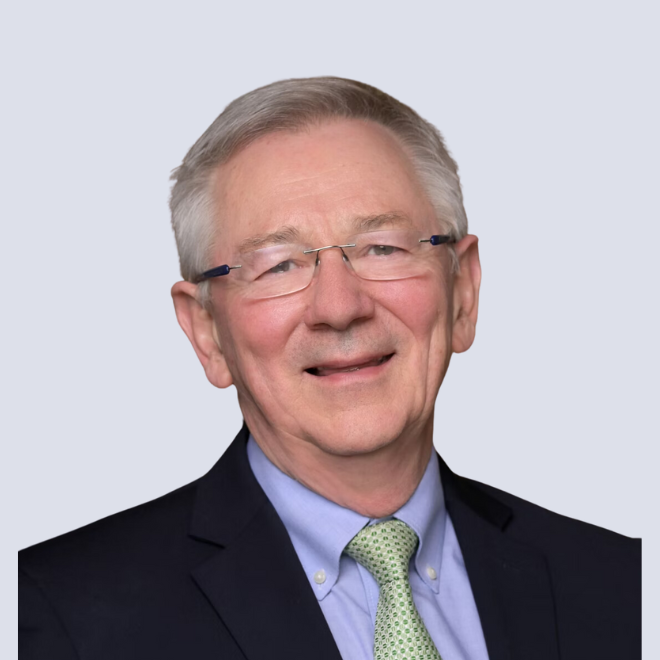
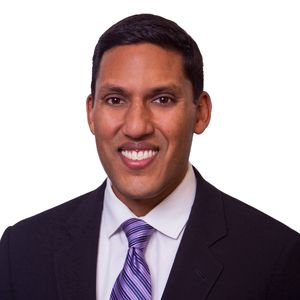
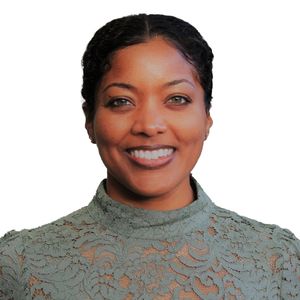
Rebekah Shirley
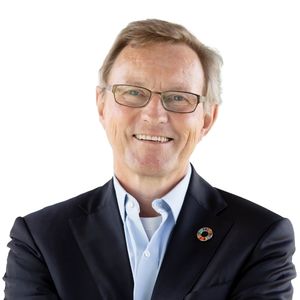


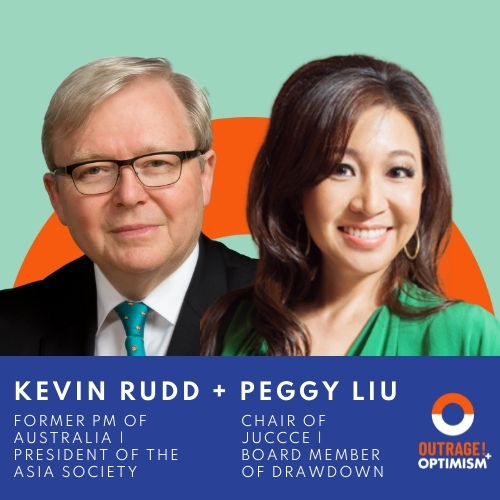
.jpg)
